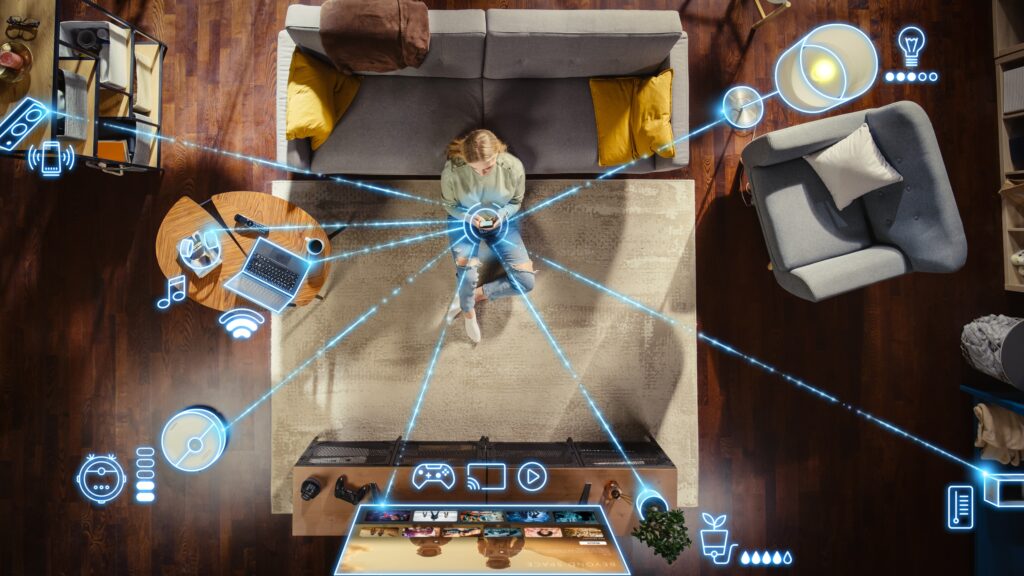The rise of the Internet of Things (IoT) has transformed the way we live, bringing unprecedented convenience and connectivity into our homes. Smart thermostats adjust the temperature before we walk through the door, voice-activated assistants play our favorite songs on command, and security cameras let us monitor our properties from anywhere in the world. While these innovations promise a seamless, futuristic lifestyle, they also introduce hidden dangers that many consumers overlook—dangers that could leave manufacturers, retailers, and even homeowners liable when things go wrong.
At Biren Law Group, we’ve seen firsthand how cutting-edge technology can lead to complex legal challenges. As smart home devices become ubiquitous, the intersection of product liability and the IoT era raises critical questions about safety, privacy, and accountability. This article explores the risks these devices pose and how product liability law is evolving to address them.
The Growing Risks of Smart Home Devices
Smart home devices rely on intricate networks of hardware, software, and internet connectivity to function. While this interconnectedness is their strength, it’s also their Achilles’ heel. Here are some of the most pressing dangers consumers face:
- Security Vulnerabilities: Hackers have repeatedly demonstrated how easily smart devices can be compromised. From baby monitors broadcasting to unauthorized viewers to smart locks being remotely disabled, security breaches are more than hypothetical—they’re documented realities. A compromised device doesn’t just threaten privacy; it can enable physical harm, such as allowing intruders access to a home. Manufacturers that fail to implement robust security measures may find themselves liable for damages resulting from these breaches.
- Malfunctions and Physical Harm: Beyond cybersecurity, physical defects in smart devices can cause serious harm. Consider a smart oven that overheats due to a software glitch or a connected smoke detector that fails to alert homeowners to a fire. These malfunctions can lead to property damage, injury, or even loss of life. Under traditional product liability law, a manufacturer could be held accountable if a defect in design, manufacturing, or inadequate warnings caused the harm.
- Data Privacy Breaches: Smart devices collect vast amounts of personal data—everything from your daily routines to your voice patterns. If a company fails to safeguard this information or uses it in ways consumers didn’t consent to, it could face liability under privacy laws or class-action lawsuits. A notable example is the wave of litigation against companies whose devices were found to record conversations without clear user permission.
- Lack of Clear Accountability: The IoT ecosystem involves multiple players: device manufacturers, software developers, cloud service providers, and retailers. When something goes wrong, pinpointing responsibility can be a legal nightmare. Was it a hardware flaw? A software bug? A failure in the third-party server? This complexity can delay justice for victims and highlights the need for updated liability frameworks.
Product Liability in the IoT Era
Product liability law has long held manufacturers accountable for defective products that harm consumers. In the IoT era, these principles still apply, but their application is evolving to address the unique challenges of smart devices.
Here’s how:
- Design Defects: A smart device with inadequate cybersecurity or a poorly engineered failsafe could be deemed defectively designed. For example, if a smart thermostat lacks encryption, making it an easy target for hackers, the manufacturer could be liable for resulting damages.
- Manufacturing Defects: Even a well-designed device can fail if it’s improperly built. A batch of smart bulbs with faulty wiring that causes electrical fires would fall under this category, exposing the manufacturer to lawsuits.
- Failure to Warn: Manufacturers have a duty to inform consumers about foreseeable risks. If a smart doorbell’s packaging doesn’t disclose that it requires regular software updates to remain secure, and a hack occurs as a result, the company could be held responsible for failing to warn users.
- Breach of Warranty: Many IoT devices come with promises of “top-tier security” or “reliable performance.” If these claims don’t hold up—say, a smart lock freezes during a power outage, trapping someone inside—the manufacturer might face liability for breaching express or implied warranties.
The Legal Landscape: Challenges and Opportunities
As smart home devices proliferate, courts and lawmakers are grappling with how to apply decades-old product liability principles to this new frontier.
Some key challenges include:
- Proving Causation: Linking a specific defect or breach to the harm suffered can be tricky in the IoT world. Was a house fire caused by a smart appliance’s glitch, or was it user error? Expert testimony and digital forensics are increasingly vital in these cases.
- Jurisdictional Issues: With devices manufactured in one country, software developed in another, and cloud servers hosted elsewhere, determining where a lawsuit should be filed—and under which laws—adds layers of complexity.
- Consumer Awareness: Many users don’t fully understand the risks of smart devices or the fine print in user agreements, which often attempt to limit manufacturer liability. Courts may scrutinize these agreements to ensure they’re fair and enforceable.
Despite these hurdles, the legal system offers opportunities for accountability. At Biren Law Group, we’re committed to helping consumers navigate this evolving landscape. Whether it’s a defective device that caused a fire or a data breach that compromised your family’s safety, we have the experience to hold negligent parties accountable.
Protecting Yourself as a Consumer
While the law catches up with technology, there are steps you can take to minimize the risks of smart home devices:
- Research Before You Buy: Look for devices with strong security features, like end-to-end encryption and regular software updates. Check reviews and recall histories to spot potential red flags.
- Secure Your Network: Use strong, unique passwords for your Wi-Fi and devices. Consider a separate network for IoT gadgets to limit exposure if one is hacked.
- Read the Fine Print: Understand what data your device collects and how it’s used. Opt out of unnecessary data sharing when possible.
- Stay Updated: Install software updates promptly to patch vulnerabilities. Manufacturers often release fixes after defects are discovered—don’t ignore them.
- Document Issues: If something goes wrong, keep records of the incident, including photos, receipts, and correspondence with the manufacturer. This evidence can be crucial in a legal claim.
The Future of IoT Liability
The smart home revolution isn’t slowing down, and neither are the legal questions it raises. As more households adopt IoT devices, we expect to see stricter regulations, clearer standards for cybersecurity, and landmark court decisions that redefine product liability for the digital age. Manufacturers will face growing pressure to prioritize safety over speed-to-market, and consumers will become savvier about their rights.
At Biren Law Group, we’re at the forefront of this shift, advocating for clients harmed by defective or dangerous products. If you’ve suffered injury, property damage, or a privacy violation due to a smart home device, you don’t have to face the fallout alone. Our team has the expertise to investigate your case, identify liable parties, and fight for the compensation you deserve.
Have Questions About Your Case? Contact Biren Law Group Today
Smart home devices offer incredible benefits, but their hidden dangers can’t be ignored. From security breaches to physical malfunctions, the risks are real—and so is the potential for liability. As technology continues to evolve, so too must our approach to protecting consumers. At Biren Law Group, we’re here to ensure that innovation doesn’t come at the cost of your safety or peace of mind.
If you suspect a smart device has caused you harm, contact Biren Law Group today for a free consultation.

